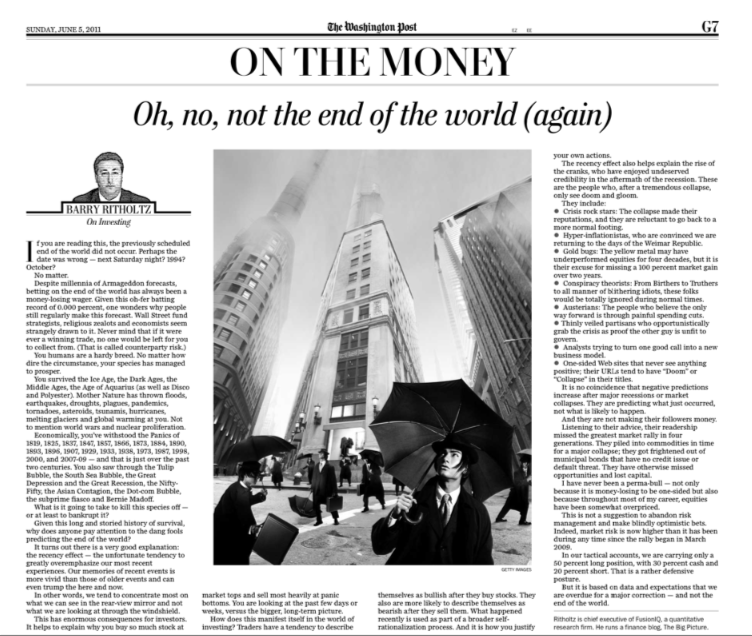>
I have a new column out in the Washington Post on why the crazies come out after major market and economic crises, titled Oh, No, Not the End of the World (Again). (Which I like better than the online headline “After a recession, the least rational rise (temporarily) to prominence. Ignore them”)
Excerpt:
“It turns out there is a very good explanation: the recency effect — the unfortunate tendency to greatly overemphasize our most recent experiences. Our memories of recent events is more vivid than those of older events and can even trump the here and now.
In other words, we tend to concentrate most on what we can see in the rear-view mirror and not what we are looking at through the windshield.
This has enormous consequences for investors. It helps to explain why you buy so much stock at market tops and sell most heavily at panic bottoms. You are looking at the past few days or weeks, versus the bigger, long-term picture.
How does this manifest itself in the world of investing? Traders have a tendency to describe themselves as bullish after they buy stocks. They also are more likely to describe themselves as bearish after they sell them. What happened recently is used as part of a broader self-rationalization process. And it is how you justify your own actions.
The recency effect also helps explain the rise of the cranks, who have enjoyed undeserved credibility in the aftermath of the recession. These are the people who, after a tremendous collapse, only see doom and gloom.”
You can check out the full online column here, or click the graphic below for the print edition
>
>
Source:
After a recession, the least rational rise (temporarily) to prominence. Ignore them.
Barry Ritholtz
Washington Post , June 4
http://www.washingtonpost.com/after-a-recession-the-least-rational-rise-temporarily-to-prominence-ignore-them/2011/05/31/AGWK96IH_story.html



What's been said:
Discussions found on the web: